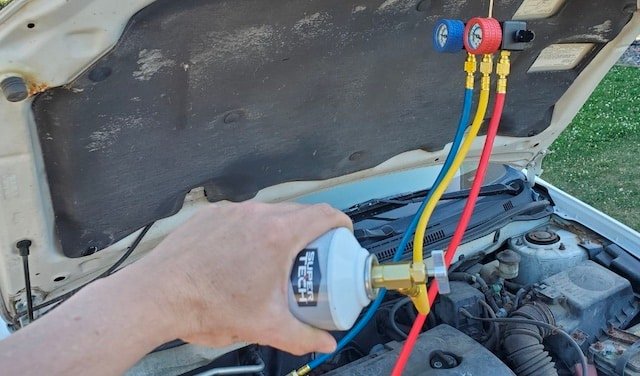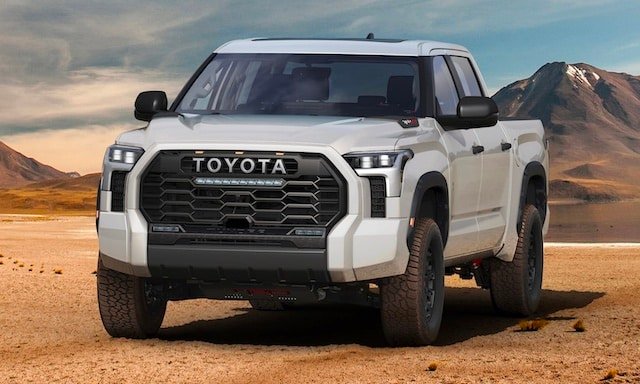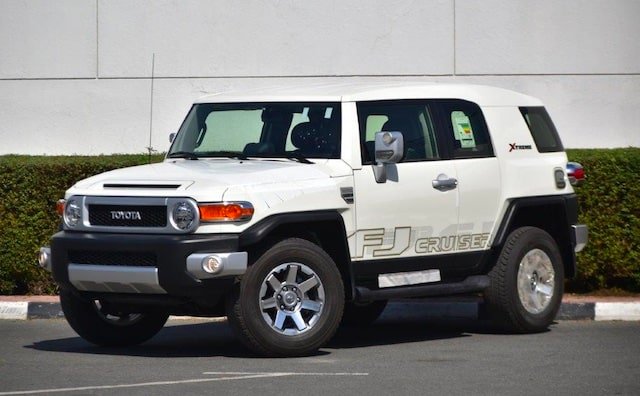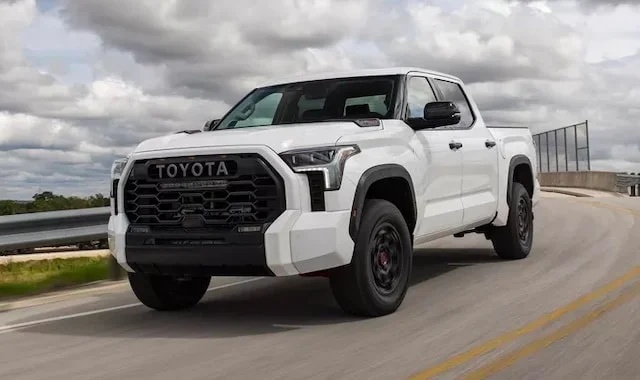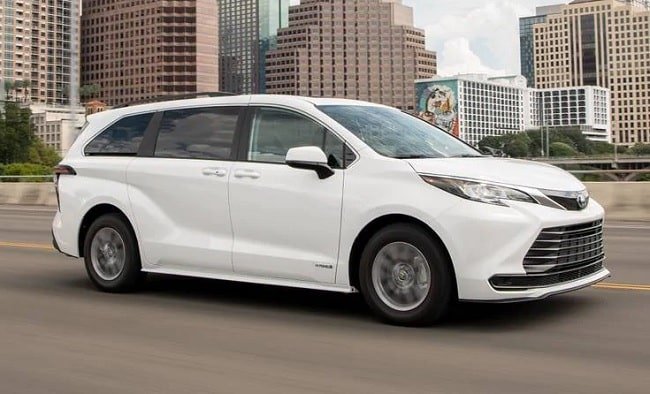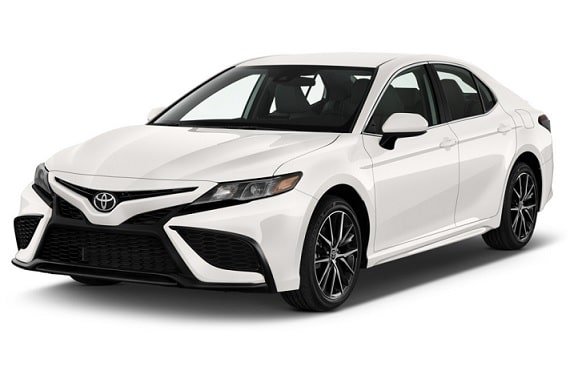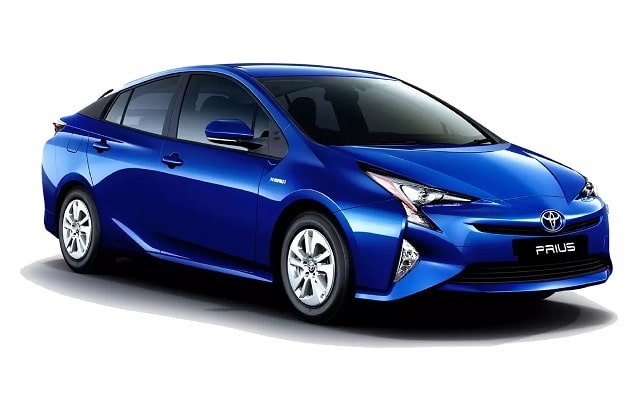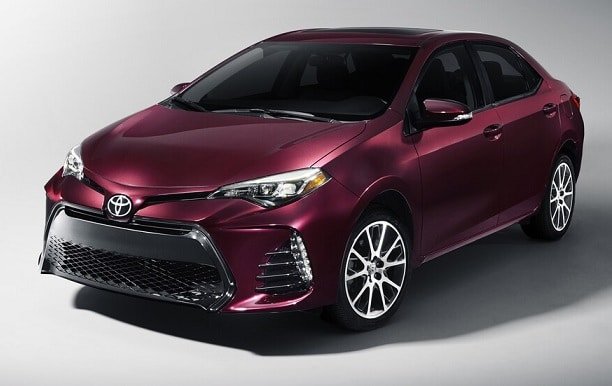Toyota is widely recognized for its ruggedness and durability but no engine is designed to last forever. You don’t need to be sad when your car engine’s journey comes to an end. Instead, put on a smiling face because it is your chance to get the engine replaced or get a new car (if you are ready).
Most people opt for the former because it is more economical or they believe the car still has much to offer if it gets an engine replacement. Before you choose a replacement or decide on installation, there are many things to consider.
This guide will answer all the questions you may have concerning the Toyota engine swap.

- Toyota Engine Swap Compatibility Chart (Top Models)
- What is an Engine Swap and Why Do It?
- 5 Things To Consider Before Ripping Your Toyota’s Engine
- 1. Modern Engines are Heavily Wired
- 2. You Might Have to Change the Cooling System
- 3. Don’t Forget the Oil System
- Toyota Engine Swap: How Much Does It Cost?
- 1. Engine Blocks
- 2. Brand and Type Of Car
- 3. Mechanic Fees
- Conclusion
Toyota Engine Swap Compatibility Chart (Top Models)
A lot of under-the-hood operations such as moving different components, the engine, and fluids are also required. The chart below provides more details on your Toyota engine.
| Model | Year | Engine Type | Belt/Chain/Gear |
| 4Runner | 1990-00.10 | 4-Cylinder | Chain |
| 1990-02 | V6 | Belt | |
| 2003-14 | V6 | Chain | |
| 2003-09 | V8 | Belt | |
| Avalon | 1995-04 | V6 | Belt |
| 2005-14 | V6 | Chain | |
| Avalon Hybrid | 2013-14 | 4-Cylinder | Chain |
| Camry | 1990-01 | All | Belt |
| 2002-14 | 4-Cylinder | Chain | |
| 1990-06 | V6 | Belt | |
| 2007-14 | V6 | Chain | |
| Camry Hybrid | 2007-14 | 4-Cylinder | Chain |
| Celica | 1990-99 | 4-Cylinder | Belt |
| 2000-05 | 4-Cylinder | Chain | |
| Corolla | 1990-97 | 4-Cylinder | Belt |
| 1998-14 | 4-Cylinder | Chain | |
| Cressida | 1990-92 | L6 | Belt |
| Echo | 2000-05 | 4-Cylinder | Chain |
| FJ Cruiser | 2007-14 | V6 | Chain |
| Highlander | 2001-07, 2009-14 | 4-Cylinder | Chain |
| 2001-07 | V6 | Belt | |
| 2008-14 | V6 | Chain | |
| Highlander Hybrid | 2006-10 | V6 | Belt |
| 2011-14 | V6 | Chain | |
| Land Cruiser | 1990-92 | V6 | Gear |
| 1993-97 | V6 | Chain | |
| 1998-07 | V8 | Belt | |
| 2008-14 | V8 | Chain | |
| Matrix | 2003-13 | 4-Cylinder | Chain |
| MR2 | 1990-95 | 4-Cylinder | Belt |
| MR2 Spyder | 2000-05 | 4-Cylinder | Chain |
| Paseo | 1992-97 | 4-Cylinder | Belt |
| Previa | 1991-97 | 4-Cylinder | Chain |
| Prius | 2001-14 | 4-Cylinder | Chain |
| Prius C | 2012-14 | 4-Cylinder | Chain |
| Prius V | 2012-14 | 4-Cylinder | Chain |
| Prius Plug-in | 2012-14 | 4-Cylinder | Chain |
| RAV4 | 1996-00 | 4-Cylinder | Belt |
| 2001-14 | 4-Cylinder | Chain | |
| 2006-12 | V6 | Chain | |
| Sequoia | 2001-09 | 4.7 V8 | Belt |
| 2010-12 | 4.6 V8 | Chain | |
| 2008-14 | 5.7 V8 | Chain | |
| Sienna | 1998-06 | V6 | Belt |
| 2007-14 | V6 | Chain | |
| 2011-12 | 4-Cylinder | Chain | |
| Solara | 1999-01 | 4-Cylinder | Belt |
| 1999-09 | V6 | Belt | |
| 2002-08 | 4-Cylinder | Chain | |
| Supra | 1990-98 | L6 | Belt |
| T100 | 1995-98 | 4-Cylinder | Chain |
| 1993-98 | V6 | Belt | |
| Tacoma | 1995-14 | 4-Cylinder | Chain |
| 1995-04 | V6 | Belt | |
| 2005-14 | V6 | Chain | |
| Tercel | 1990-98 | 4-Cylinder | Belt |
| Truck | 1990-95 | 4-Cylinder | Chain |
| 1990-95 | V6 | Belt | |
| Tundra | 2000-04 | V6 | Belt |
| 2000-09 | 4.7 V8 | Belt | |
| 2005-14 | V6 | Chain | |
| 2007-14 | 5.7 V8 | Chain | |
| 2010-14 | 4.6 V8 | Chain | |
| Venza | 2009-14 | All | Chain |
| Yaris | 2007-14 | 4-Cylinder | Chain |
What is an Engine Swap and Why Do It?
An engine swap is the process of replacing a failed or faulty engine (original or not) with a new or fairly used engine. Aside from this direct replacement, some drivers opt for this process to customize and boost the performance of their rides.
Irrespective of the cause, the swap procedure is best carried out by an auto expert. The process often involves disconnecting existing hoses, connectors, and various mounting devices.
5 Things To Consider Before Ripping Your Toyota’s Engine
If you wish to change your Toyota’s engine, there are a few things you must consider. These factors will help you with your budget and ensure you don’t encounter surprises along the process.
1. Modern Engines are Heavily Wired
In the early days of automobiles, there were fewer wires and electric functions attributed to engines. Now, the story is different because a modern Toyota engine relies more on electricity. This is great because it allows different features to be linked with car engines seamlessly.
Before removing an engine for replacement, take a look at the type of connection. Components such as the gauge and amperage should be duly verified to determine the type of engine suitable for the swap. Everything on the replacement must be compatible (for direct replacement) to ensure your ride functions perfectly. For engine upgrades, a few tweaks may be required
It can be stressful to keep tabs on wires when replacing an engine, hence, the moment you are under the hood, you must be focused and give the wiring connections all your attention.
2. You Might Have to Change the Cooling System
A vehicle’s cooling system is designed to regulate temperature during an action. Most engine swaps often involve changing or installing an auxiliary cooling system to prevent overheating and other concerns that can increase the cost of engine replacement. A common concern is engine failure.
3. Don’t Forget the Oil System
Like the cooling system, your Toyota cannot run without motor oil. The oil transfer system in your car is crafted in line with your existing engine’s specifications. To get the new engine or replacement up and running, you must make a few modifications to the fluid reservoir or create enough space to accommodate a new one.
Toyota Engine Swap: How Much Does It Cost?
If you are worried about the cost of the whole procedure, there is no definite answer for that. This is because we don’t know the type of engine in your car and other things.
However, here are a few factors that can solidly affect the cost of an engine replacement:
1. Engine Blocks
There are 3 major types of engine – short block, long block, and a complete engine. As the name suggests, short block engines are usually small and take about one-third of the total size required for a full engine. It includes pistons, connecting rods, bearings, and freeze plugs, to name a few. Alongside other components, short block engines are the cheapest of all 3 options.
Long block engines (cylinder heads+small block) on the other hand, are regarded as almost-complete engines. This is due to the presence of cylinder heads and other components alongside the small block. If you are not hell-bent on extensive customization, this is a great engine option. In terms of price, it is more expensive than short blocks but not as expensive as a full engine.
A complete engine remains the best option regardless of your immediate need. However, they are super expensive. Complete engines are great for drivers who prioritize full customization and know what they want in their engine.
Note: Before buying an engine, consider the brand, features, and technical requirements of your car. This can save you a lot of money.
2. Brand and Type Of Car
Your choice of the car also plays a significant role in how expensive a swap can be. Regular or basic cars with common replacements will likely enjoy an economical swap than exotic cars because the parts can be easily bought and fixed.
Exotic or sports cars designed for performance will require special and more expensive complete engines. Their replacements are always hard to find and the procedures involved in their replacement are not an everyday thing. Auto experts need time to study and understand the entire procedure before they commence.
3. Mechanic Fees
Auto experts charge per hour. This fee may range from $50 to $100 and the entire process may require about 20 hours. You should plan to spend at least $500 to $1500 on labor.
Engines cost between $500 (short block) and $9000 (complete or high-performance engine) depending on your Toyota model. Please note that additional components must be bought to complete the swap process.
Conclusion
There is more to replacing a Toyota engine than just ripping the old engine out and installing a new one. Although that itself is a lot of work, you need to pay full attention all through the process and change all secondary components you feel need to be changed.
We know it is a highly complicated procedure and only suggests it should be performed if it is the only solution. Ensure you discuss at length with an auto expert to know if it is the only solution for your car before going ahead with a swap.
